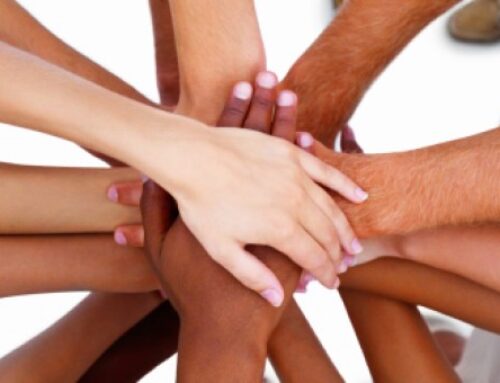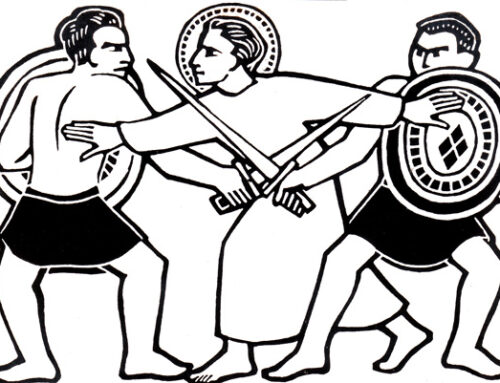Why White Christian Solutions to Racism Fail
June 23, 2015
We have a racism problem in this country.
As a white male, I’m sad to say that I’m a part of that problem.
If you have been paying attention to the news during the last week, you know that a young white man named Dylann Roof killed 9 African-Americans during a church prayer meeting in Charleston, South Carolina. Roof reportedly hoped the murders would start a ‘race war,’ telling the people at the church, “I have to do it. You’re raping our women and taking over the country. You have to go.”
When I heard about the hate crime, I had a bunch of different reactions: shock, disbelief, sadness, and anger. Amidst my reactions, I started to think about the different strategies people use to try to solve the problem of racism. I also started to think about church, and how white Christians try to solve the problem of racism.
Many white Christians (myself included) care deeply about the problem of racism. However, the solutions we propose for the problem of racism are usually individual and relational.
Love your neighbor as yourself. Remove hate in your heart. Develop interracial friendships. Treat others as you would like to be treated.
The problem with individual and relational solutions is that racism isn’t just an individual thing. Individual racism grows out of two other forms of racism: institutional racism and cultural racism.
Institutional racism has to do with social systems and organizations that create policies that lead to inequalities and disparities among racial groups. Examples of institutional racism are racial profiling in the justice system, housing discrimination, and educational disparities.
Cultural racism has to do with societal beliefs and customs that promote the cultural norms and behaviors of one culture (e.g., White) as superior to the cultural norms and behaviors of another culture (e.g., Black). Examples of cultural racism include belief systems that support white supremacy and privilege.
Dylann Roof committed a horrific act of individual racism. But a person doesn’t just wake up one morning and decide to carry out a hate crime. Individual racist acts grow out of interlocking systems of institutional and cultural racism.
And when it comes to addressing institutional and cultural racism, individual and relational solutions have limited effectiveness.
Discussion: What do you think about the tendency for white Christians to rely on individual and relational solutions to racism? What do you think about the intersection of individual, institutional, and cultural racism?
Related Thoughts
No Comments
Leave A Comment

Subscribe To My Newsletter
Join my mailing list to receive the latest blog posts.
Receive my e-book “The Mental Health Toolkit” for free when you subscribe.






To see oneself as privilaged is almost impossible in the American Culture. I just had this conversation recently and with a white male friend. He assured me that he was not privilaged at all but that his class of people is the worst prejudiced of all now. As I talked to my husband about the convesation a few days later, (he wasn’t with me at the time), our thoughts were this. “Because white males have had privilage they are struggling as their privilage is slowly deminishing. They don’t know how to handle not having “it all” – be it power, success, importance, first place and they are really struggling. My comment to my friend was, well if one tackes a step back they can see how others have felt and work toward the middle… that didn’t go over well, but it is the truth. GIVING UP PRIVILAGE IS HARD… IT TAKES THE POWER OF A RISEN SAVIOR TO CHANGE OR DISRUPT SOCIAL NORMS AND BIASES. Your article is interesting. Americanism is definately and enemy to the Cross centered life that true Christian life is called to express. God Bless you!
Different races are different. You cannot ignore that and nothing will change that. But if everyone followed the Biblical admonition to love your neighbor as yourself we wouldn’t have racism as the federal government and media define it.
Great thoughts Josh. As a black/Hispanic Christian I appreciate the desire and efforts of white Chrisrians to help heal the wounds of racism. However I don’t think thr individual and relational approach is just a white Christian problem. I find myself in that position sometimes. To change racism at the institutional and cultural level would require something radical. It would require all Christians to fully live out the implications of the gospel where they are not only just loving all people, but fighting for justice, pleading the case of the marginalized, and seeking unity. It’s easy to say “well I’m just going to love people and teach my family to love people”, than to fight the systems that are keeping people oppressed. I say this because I struggle with this.
I think you’re unlikely to find people that will fight for changes to institutional and cultural racism if they aren’t already engaging in the individual and relational approach.
Really interesting thoughts here. SSC, I think you are right, it’s difficult to recognize one’s own privilege. I think it’s tough because a lot of times privilege can just seem ‘normal’ or ‘the way things are.’ Figuring out what to do with one’s privilege is an even more difficult question. But recognizing it is the first step. Dixon, I think you make an important point that cultural differences do exist, and there is something beautiful about diversity. I don’t want to advocate for everyone being ‘the same.’ I do think it’s important for people to be treated fairly and have an equal opportunity to succeed and reach their goals, irrespective of their racial background. Unfortunately, I don’t think we have that yet here in the U.S. Chevas, good point and thanks for sharing that you struggle with this tension as well. I agree, changing institutional and cultural racism would require something radical. Stephen, good point about the possible connections between the institutional/cultural and individual/relational. I think you’re probably right, the motivation to advocate for institutional and cultural changes may arise from personal experience or seeing one’s friends or family negatively affected by racism.
Thank you Josh, I appreciate your honesty regarding this issue